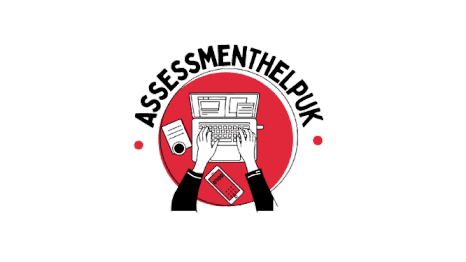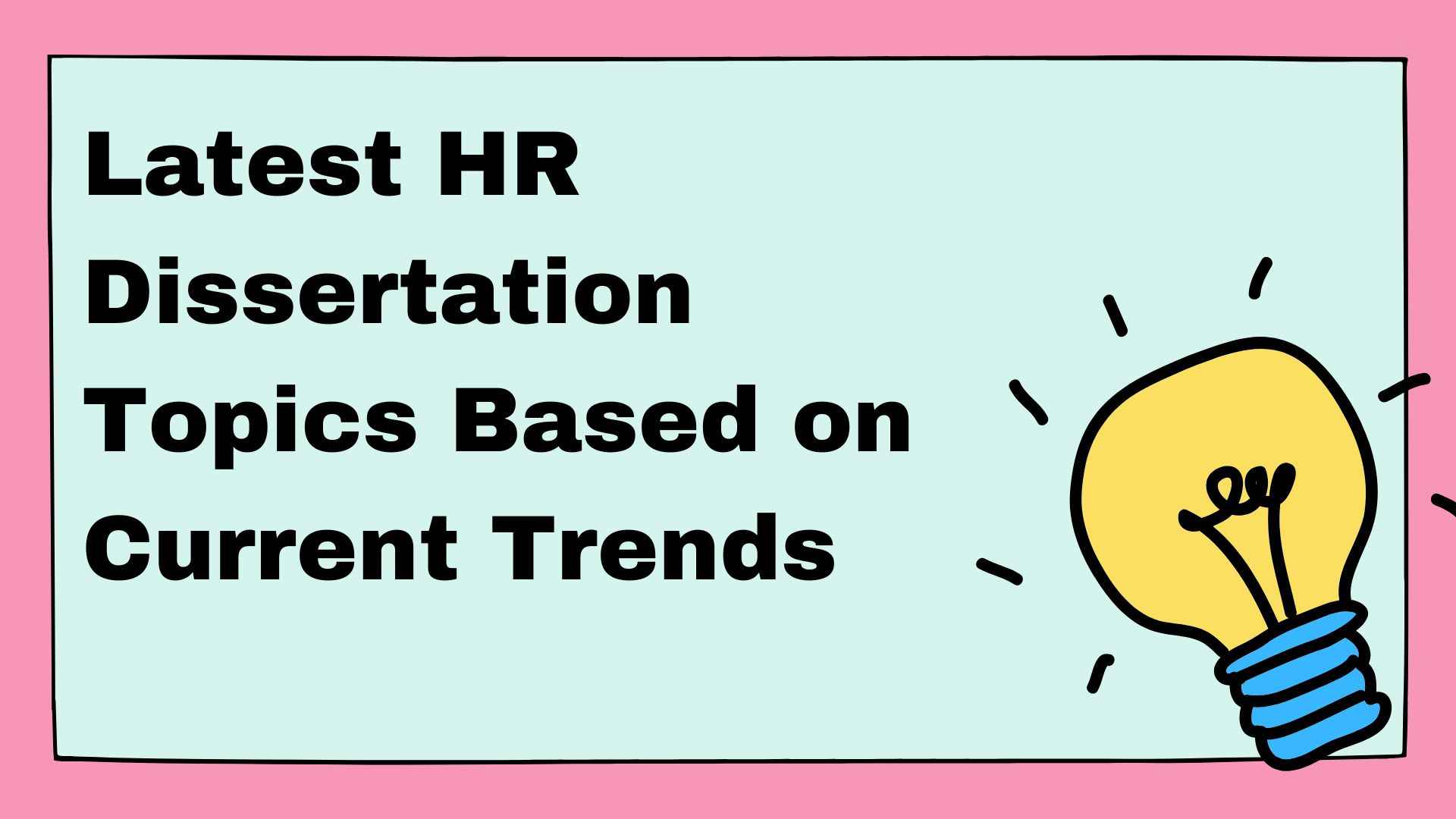Human Resources isn’t a back-office function anymore. It’s a forefront that shapes employees’ working experience, how organisations stay resilient, and how cultures change under pressure. For many students in business and management degrees, this shift is an exciting opportunity and a challenge: the old, predictable dissertation areas that no longer feel relevant, but the new terrain is so massive that it can be impossible to feel like where to begin.
That’s where having a sound knowledge of the latest HR dissertation topics becomes more essential. Rather than writing on a boring subject, you can position yourself in the middle of the conversation employers, policymakers, and scholars are actually having, as a result. A dissertation that feels more lively, timely, and persuasive, and a piece of research that strengthens your credibility when you step into your HR role or move to a postgraduate qualification.
HR’s New Landscape
Over the past few years, the HR agenda has grown dramatically, from one that was completely devoted to compliance and basic day-to-day administration to one that now covers workforce analysis, supports diversity, digital growth, mental health, and hybrid working policies. The UK’s own regulatory shifts from gender pay gap to post-Brexit immigration rules have further complicated the field.
This means today’s HR dissertation topics can’t be just picked from a textbook like it was a few years ago; they need to reflect the real workplaces and real debates, such as: How are organisations using data responsibly? What does “employee experience” mean in a four-day working week? How do you measure the impact of wellbeing programmes or inclusion strategies? How can small businesses compete with large firms on employer branding?
Each of these questions shows a real issue that’s inside HR departments at the moment and signals steady ground for a more technical approach.
From Academic Exercise to Career Investment
Selecting the right subject isn’t just about ticking an academic box; it’s about giving time to your career. A well-chosen dissertation topic can double as a portfolio piece you discuss at interviews, evidence that you understand what means the most to HR leaders currently.
As an instance, research regarding “The efficacy of AI-driven recruitment tools in minimizing bias” evidences your understanding of both ethics and technology, two hot topics for HR directors. A study regarding “Flexible working and employee retention in UK SMEs” shows that you comprehend the labour market post-pandemic and the pressure on the smaller organisations to change.
What You’ll Gain From This Guide
In this article, we’re not just discussing HR dissertation topics randomly. We’re showing you where the energy and urgency are in the profession today. Each of the sections will help you to unveil a major shift from digital transformation to employee wellbeing, from inclusive leadership to sustainable HR and give you topic ideas that are truly researchable within a student timeframe. By the end, you will have a shortlist of dissertation themes that are timely, distinctive and more meaningful.
By setting the core foundation, you’re already ahead of the curve. You think like a practitioner and researcher at the same time, seeing HR not just as an academic discipline but as a living, shifting field of practice. Next, we will look at the most in-demand themes and show you some concrete ideas under each one so you can begin shaping a dissertation proposal that matters a lot.
Current clusters of high-impact HR Dissertation Topics
Now that you have seen why going with the right subject matters is important. Here are the major trend clusters that make the most useful, easy-to-research HR Dissertation Topics today. Each of them includes clear and concise angles that you can turn into a strong and engaging question.
Digital transformation and automated selection tools
Most of the organisations these days use software to monitor CVs, schedule interviews and predict turnover. That really opens up questions about fairness, transparency and outcomes. Instead of studying technology for technology’s sake, ask them practical questions: How do algorithmic hiring tools affect the diversity of shortlisted candidates in the UK firms?
Do cloud-based HR platforms improve line-manager decision-making, or simply shift administrative burden? A strong dissertation here assesses both process change and employee experience, using company data, surveys of HR staff or case studies in a single sector.
Employee well-being, mental health and workload design
Wellbeing and mental health remain at the top; you can evaluate if wellbeing programmes reduce sickness absence, or measure how specific rota changes affect the burnout. Rather than vague “wellbeing” topics, focus on interventions and measurable results: for instance, compare the effect of manager training versus peer support on nurse retention in the acute trusts. Use mixed methods staff surveys plus a small set of interviews to capture numbers and lived experience.
Diversity, equity and inclusion that actually changes practice
Diversity, Equity, and Inclusion now consider questions of impact, rather than simply targets. Therefore, some useful HR Dissertation Topics to consider include whether inclusive leadership behaviours lead to greater levels of innovation in small firms, or pay transparency reduces gender pay gaps in specific sectors.
Another area of focus may be intersectional barriers, for example, how do migrant workers from certain backgrounds experience progress within care homes in the UK? These types of dissertation topics pair well with organisational audits, policy document analysis and interviews.
Hybrid working, flexibility and the employee contract
Post-pandemic experiments vary widely. Topics that matter: examine outcomes, not slogans: Does formal hybrid policy increase productivity in the marketing teams? How does remote working affect newcomers’ socialisation and promotion chances? Studies that compare teams, control for role type, and measure out clear performance indicators tend to persuade examiners and employers.
Sustainable HR and social responsibility
HR now shapes sustainability strategies: Recruiting for green skills, incorporating sustainable KPIs into strong appraisals, or even retraining staff for low-carbon roles. A dissertation might analyse how “green HRM” initiatives influence employer brand attractiveness among graduates, or evaluate reskilling programmes in sectors facing decarbonisation. These projects link people strategy to broader corporate outcomes and spark policy debates.
Turning a theme into a dissertation question
Select one cluster and then narrow it down by sector, population and method. As an example, from “hybrid working,” you could say, “How do hybrid working arrangements impact career development for junior managers in hospitality firms in London”? This level of specificity provides clarity regarding the potential data sources and feasibility of the study.
Turning Broad HR Dissertation Topics into a Clear Research Plan
You have explored the biggest HR Dissertation Topics of the moment: hybrid working, AI in screening, workplace wellness, diversity, and talent retention. Now comes the part that most students find hardest: shifting from “I like this area” to “I have a question I can actually do some research on.” A good dissertation doesn’t just repeat trends. It tests an idea, compares options or measures impact. Here’s how you can move from a theme to a question and then straight into the working plan.
Step 1: Narrow your lens before you start writing
The subject of “AI in HR” is still too broad, think of it in terms of a specific process, outcome or group. For example:
- The use of AI screening tools and their impact on applicant diversity in public sector jobs in the UK.
- The role of AI chatbots in onboarding new employees in the hospitality industry.
Both of these are still related to the original topic, but you have a real-world context, a group and an outcome that can be measured.
Step 2: Frame a question you can actually answer
Consider what your relationship is that you want to test: “What is the effect of X on Y?” or “What are the experiences of the Z group?”
When you ask your question this way, you inherently create a roadmap for the literature review undertaken and the data collected. A couple of examples:
- “What is the effect of flexible scheduling on employee retention in the UK in healthcare venues?”
- “What are the effects of hybrid working policies on productivity in start-up businesses in London?”
Both examples are in current HR Dissertation Topics, but worded as clear research questions.
Step 3: Sketch a quick mini-plan
Before committing, write a one-page plan answering:
- Data access: Can you reach participants, or use existing datasets?
- Time: Can you realistically gather and analyse the information before your deadline?
- Resources: Do you need specialist software or ethics approval?
Step 4: Test your idea with your supervisor early
Bring your narrowed questions and mini-plan to your supervisors. This saves weeks of rewriting and shows you have done most of the groundwork. Supervisors respond much better to a clear proposal than a vague theme.
Why this process matters
A student who spends a bit of time, a few hours, now to clarify their HR Dissertation Topics leads to a manageable, meaningful, and valuable dissertation project for an employer. They also have more worthwhile literature reviews, better data chapters, and a dissertation that carries importance.
From a Good HR Dissertation to a Great One
You have chosen a clear research question, mapped your plan and started gathering evidence. Now comes the stage where most of your work stops being “typical another student project” and starts making more sense and reading like a piece of professional HR analysis. This final push is where you give your dissertation a fair competitive edge and show examiners you have the capability to think and write like a future HR leader.
Make your data feel alive.
Don’t just list the survey results or quotes from interviews on the page. Lead your reader through what these numbers or statements mean. For example, if you surveyed 50 employees about hybrid working, consider listing the strongest patterns of responses from your data, and connect the patterns back to the theoretical literature you had written about earlier. This movement from data to story or narrative ultimately brings the data to life by telling a true story about real people and real organisations.
Blend theory and practice in every chapter.
Examiners can quickly identify whether the dissertation is divided into “academic stuff” and “fieldwork stuff.” A more effective approach is to integrate the two. When you introduce a model, for example, psychological safety or talent management, you should demonstrate precisely how it manifests in your own findings. This type of style not only reads better but also demonstrates that you understand how theories about HR manifest themselves in practice.
Present your findings like a consultant, not a student
| Element | Common Approach | Stronger Approach |
| Literature Review | Summarises articles separately | Synthesises trends and gaps to justify your question |
| Methodology | Lists methods generically | Explains why each method fits your chosen HR Dissertation Topic |
| Results | Provides raw outputs | Interprets them in plain English and links to HR practice |
| Conclusion | Restates findings | Shows implications for policy, future research and employers |
Reflect, don’t just report
A brief, candid reflection at the end has the potential to elevate your dissertation. Identify what worked well and, given the same chance to undertake the dissertation again, what would you do differently? Then, please position your findings in the wider HR landscape. You should not be daunted by this task; it is not self-effacement, it articulates some professional maturity, some self-awareness and a thoughtful, considerate disposition.
Final words
Tackling contemporary HR Dissertation Topics may seem daunting, but the entire journey – refining your topic, articulating a precise question, collecting new evidence and presenting it insightfully – will produce more than an acceptable project. You will have produced a polished piece of work that you can use on your CV, for interviews or even publish.
Your dissertation will be transformed from potential academic trauma into an opportunity: an illustration of your capacity to critically analyse evidence, ask difficult questions and improve HR practice in the workplace. This is the kind of work that examiners reward – and employers remember!
FAQs
What constitutes a good HR dissertation topic?
A good HR dissertation topic is focused, manageable, and relevant to workplace trends of today, which allows for easier data collection that has an impact on practice.
How can I turn a broad HR dissertation topic into a straightforward question?
A good strategy is to get focused on one process, population, or outcome (for example, diversity in technology hiring), and then think of that phenomenon as a relationship or impact, which you could measure.
Are trends at work, like hybrid working, acceptable HR dissertation topics?
Yes, hybrid working, artificial intelligence in recruitment, and workforce wellness/good healthy living are examples of HR dissertation topics that offer a new lens and resource to collect your data.
How early do I need to pick my HR dissertation topic?
Picking early will allow you time to sharpen your research question, test out the feasibility of your project with your supervisor, and acquire any permission you need to collect data.
Can I address two HR topics in my dissertation?
You can, but it’s easier and safer to link two more closely related ideas (for example, flexible working and retention); finding two unrelated topics can dilute your findings.



